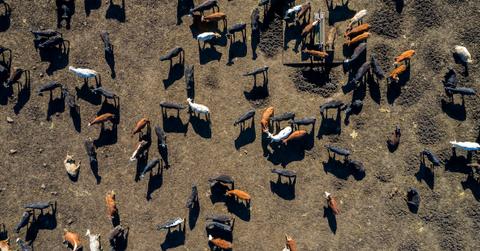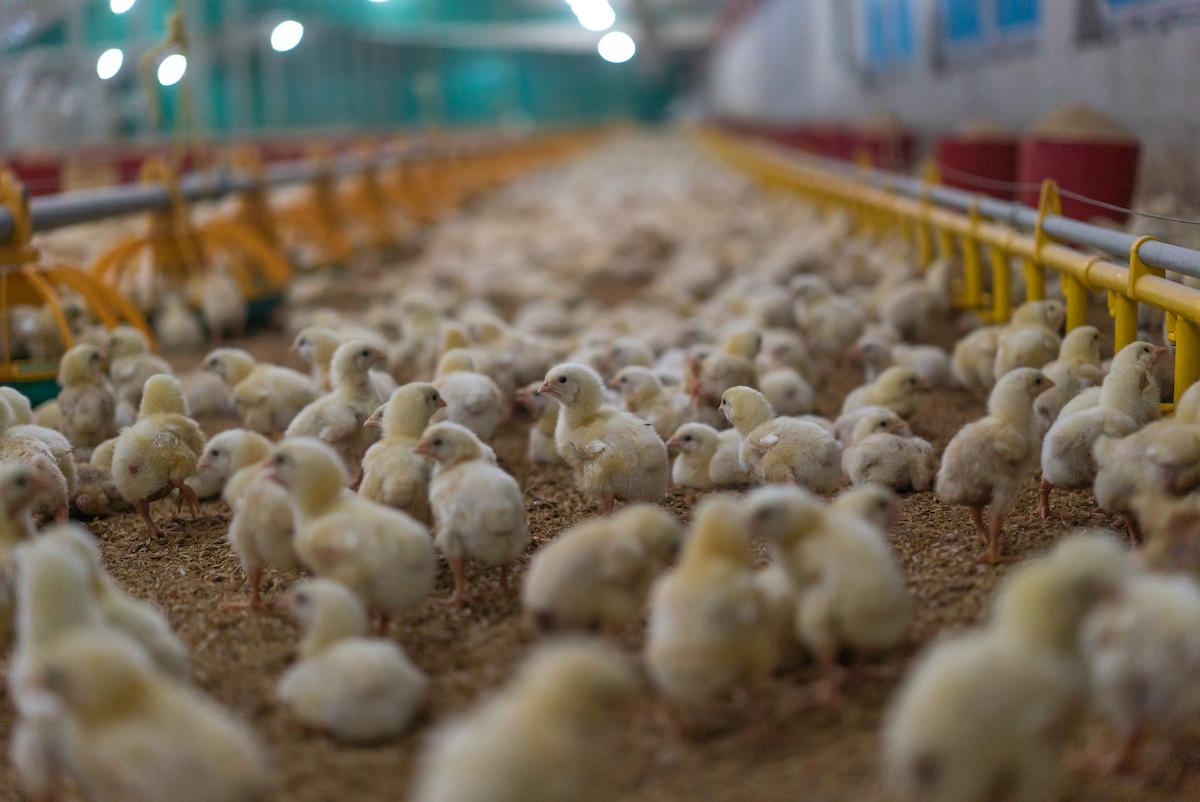What the U.K.'s $2.1 Billion Farm Subsidy Redistribution Means for the Planet
The U.K. government is redistributing £1.6 billion ($2.1 billion USD) of its farm subsidies to reward farmers practicing sustainable agriculture.
Published Dec. 1 2020, 12:09 p.m. ET

Without farm subsidies, many agricultural sectors would not be nearly as profitable, and food would be far more expensive for consumers — especially with respect to the animal agriculture industry. So it’s pretty significant that the U.K. government is redistributing £1.6 billion ($2.1 billion USD) of its farm subsidies to reward farmers practicing sustainable agriculture.
But what exactly does this mean? Read on for what you need to know regarding agricultural subsidies, and their influence on the farming industry as well as the economy.

Governments hand out billions in agricultural subsidies every year.
The U.K. government hands out around £3 billion (about $4 billion USD) a year in agricultural subsidies, according to Science Magazine, (though The Guardian reports that the annual total is actually only £2.4 billion each year), meaning this redistribution will affect about half that.
Every year in the U.S., the government gives animal farmers from the meat, dairy, and egg industries about $38 billion in government subsidies, according to CleanTechnica. Not only do these subsidies keep meat, dairy, and egg farmers in business, but they also keep the price tags on meat, dairy, and eggs low — though the consumer is paying far more than what is on the price tags, as taxpayer money makes up the bulk of these subsidies.
The U.K. is redistributing £1.6 billion to better the environment.
As reported by The Guardian, £1.6 billion of the U.K. government’s farming subsidies will be phased out by 2028. Currently, subsidies are handed out based on how much land farmers manage, according to BBC News, and this new scheme will instead reward farmers for growing more food and practicing farming more sustainably.
The change will be gradual, giving farmers time to adapt. The farmers currently enjoying £150,000 or more in government payments every year will see 25 percent cuts in 2021, while farmers currently receiving £30,000 or more annually will only see 5 percent cuts in 2021, as per The Guardian.
The government will redirect the funds by paying farmers who take positive actions for the environment, such as practicing sustainable farming habits, restoring wild habitats, establishing new woodlands, regenerating soil, and quitting pesticides, according to a speech given by Environment Secretary George Eustice, who called the current area-based subsidy reward system “arbitrary.”
Going forward, Eustice says the government’s goal is to help farmers across the U.K. sustainably produce healthy food for a profit by 2028 — without the need for subsidies.
“We want farmers to access public money to help their businesses become more productive and sustainable, whilst taking steps to improve the environment and animal welfare, and deliver climate change outcomes on the land they manage,” Eustice said in a statement.
“Rather than the prescriptive, top down rules of the EU era, we want to support the choices that farmers and land managers take,” the Environment Secretary continued, acknowledging that Brexit played a role in this new plan. “If we work together to get this right, then a decade from now the rest of the world will want to follow our lead.”
Redirecting farm subsidies could help prevent future pandemics.
One of the key changes within the U.K.’s new plan is to reward farmers for improving animal health and welfare, which Eustice says will “initially focus on controlling or eradicating endemic diseases amongst cattle, pigs and sheep.” This is quite timely, considering the evidence that COVID-19 is a zoonotic disease, and one that many experts believe first passed from animals to humans in a livestock market.
Earlier this year, a coalition hundreds of health experts and conservation organizations advised the World Health Organization (WHO) to order governments to shut down live animal markets to help prevent future pandemics. We also recently wrote about how phasing out animal agriculture subsidies could help prevent more pandemics.
While some have criticized the vagueness of the new plan, hopefully as more retails emerge, the scheme will prove a positive thing for U.K. farmers as well as for animal welfare, sustainable farming, and public health.